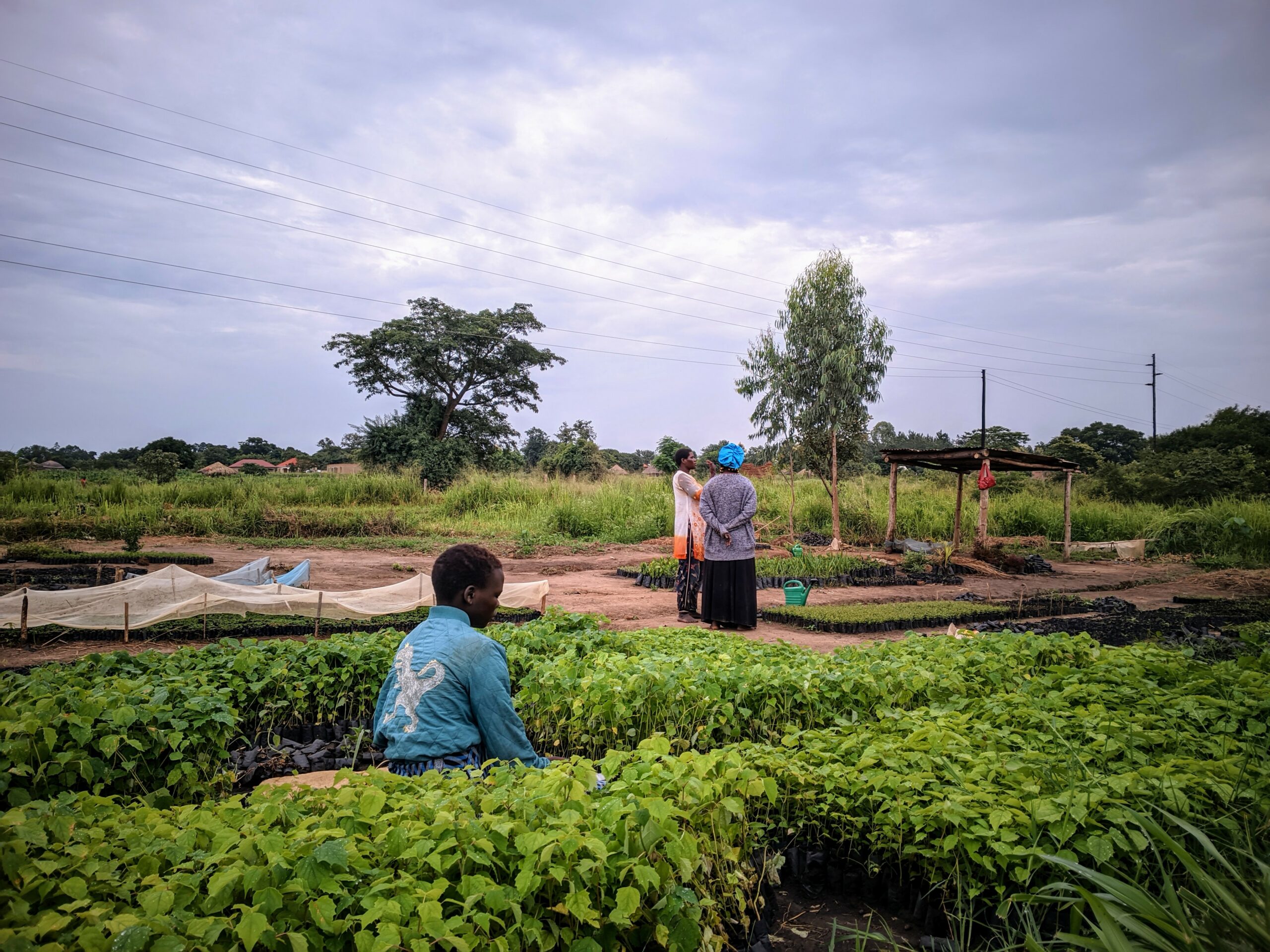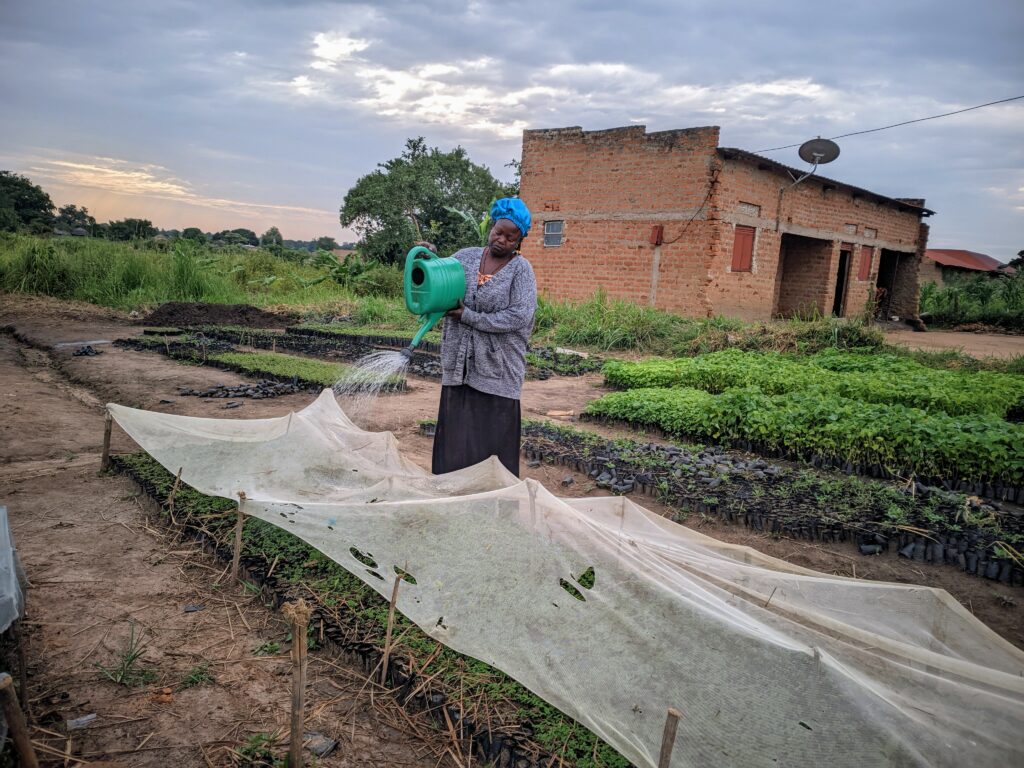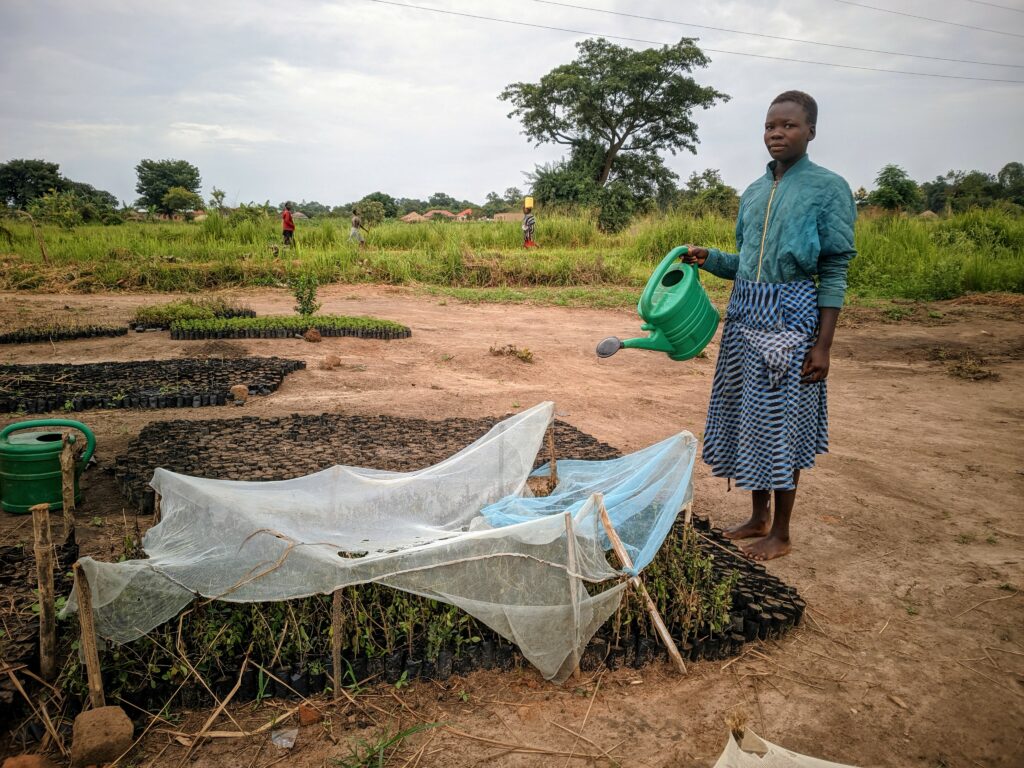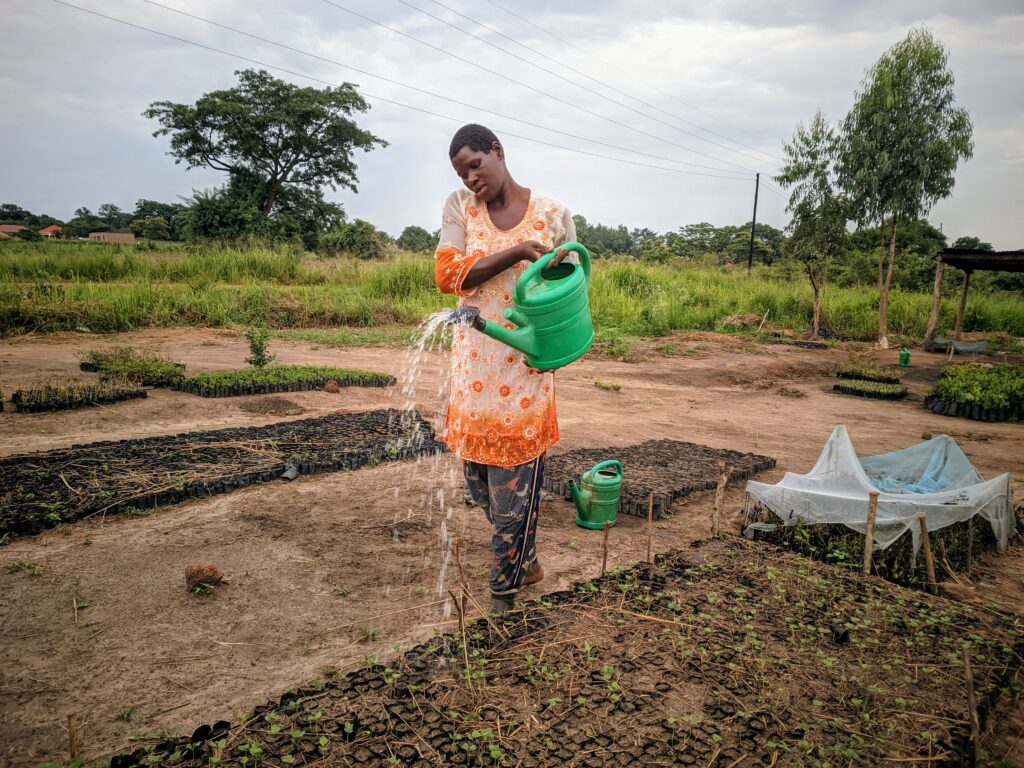
 Rapa FM Pader
Rapa FM Pader

 Rapa FM Pader
Rapa FM Pader
5 June 2025, 11:21

By James Patrick Odongo
In a quiet corner of Pader town council, along Latanya road, a powerful green revolution is taking root—led by a woman determined to change lives and landscapes.
Apio Grace Kinyera, 49, is the founder of P’Lamunu Tree Nursery Bed, a community-based project that’s helping restore forests and empower women through tree planting in Pader and neighboring districts.
“I grew up in Palabek Kal in Lamwo district, where the rocky but fertile land taught me the importance of trees,” Apio says. “I got inspired by visit to a lady called Juliet in Masaka who owns a tree nursery. That’s where the dream began.”
A certified forester and forest ranger employed by Pader district, Apio has turned her passion into purpose. Despite community perceptions that nursery work is dirty and lowly, she earns between UGX 30,000 to 40,000 per day, enabling her to build a permanent home and pay her children’s school fees.
“I sell seedlings at just 200–300 shillings because I want to help people afford tree planting,” she explains. “This region is poverty-stricken, and restoring lost tree cover is urgent.”
Apio has already employed two women and hopes to attract more, recognising how tree planting can create financial independence and climate resilience. She’s also become a local tree consultant, enhancing her social capital and network.
However, the journey hasn’t been easy since the project management requires capital
“A kilo of pine seeds costs UGX 2 million. Clone eucalyptus requires a greenhouse. I lack the tools and capital needed to scale,” she shares.

She also points out that in many parts of Pader, tree planting is seen as a last resort—only attempted on exhausted lands. This, coupled with a negative mindset and low awareness, makes it hard to grow environmental consciousness.
Apio is calling on the government to do more than just advocate for tree planting.
“Don’t just sing about it—invest in it,” she urges. “Tree planting should be treated as a retirement package. It can support people financially in their old age.”
Her impact is already inspiring others. Atimango Jennifer, one of her nursery assistants, left the cloth-selling business to join the project.
“This is more profitable,” Jennifer says. “And I feel like I’m doing something meaningful.”

From restoring forests to restoring dignity, Apio Grace Kinyera’s story is proof that with a few seedlings and a lot of determination, one woman can spark change.
“Let’s embrace tree planting—not just as an environmental act, but as a pathway to economic resilience and community development.”
Recent statistics obtained from the Ministry of Water and Environment indicates Uganda is losing 122,000 hectares of forest cover annually.
The statistics further reveals that in 1990, Uganda had 24 percent of forest cover, but due to the escalating illegal activities including deforestation and population growth, that has forced people to encroach on the various forest reserve land to carry out cultivation, this has drastically reduced the forest cover to 12.7 percent currently.